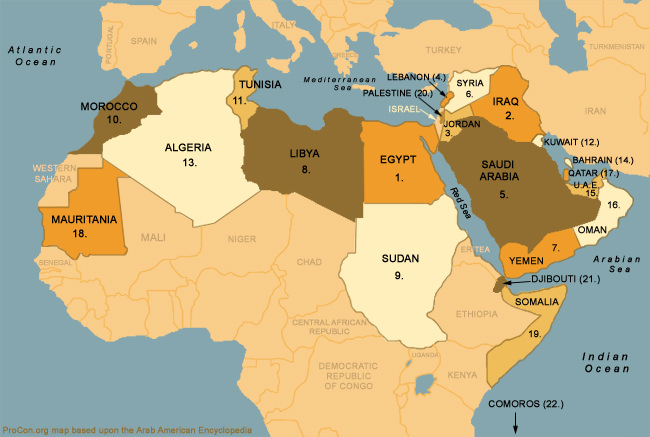By: Shaahima Fahim
The Arab League officially halted its observer mission to Syria on Saturday the 28th of January 2012, just a month after agreeing to introduce the presence of their monitors across the beleaguered republic.
The current state of the Arab Republic needs no introduction; with the number of fatalities escalating to hundreds on a daily basis under the authoritarian rule of President Bashar Al Assad, and more recently with the heavyweights China and Russia vetoing a draft UN security council resolution pressing for his immediate resignation, all news bulletins are pointing Middle East-wards.
Keep supporting MuslimMatters for the sake of Allah
Alhamdulillah, we're at over 850 supporters. Help us get to 900 supporters this month. All it takes is a small gift from a reader like you to keep us going, for just $2 / month.
The Prophet (SAW) has taught us the best of deeds are those that done consistently, even if they are small.
Click here to support MuslimMatters with a monthly donation of $2 per month. Set it and collect blessings from Allah (swt) for the khayr you're supporting without thinking about it.
An 18-page confidential account of the League’s mission was recently just leaked, and only serves to highlight its impotence as a functioning political collective. Citing shortage of equipment and dispatches of ill-qualified monitors among other absurd excuses for retreating from this particular mission, the Arab League can now add ‘the Syria attempt’ as the cherry to its metaphorical pie of failed interventions.
Ever since its formation in 1945, the Arab League has relinquished many an attempted mediation to its Western counterparts or the UN.
In the Iraq War of 2003, it was not the Arab League that intervened but the non-member nations, Iran and Turkey. Palestine in the Arab-Israeli dispute has also not been provided with any support save for a half-hearted egging on from the sidelines in the form of the proposed (yet snubbed) Arab Peace Initiative. And more recently, the League’s decision to remain mum on the twin uprisings from earlier last year in the overthrow of Presidents Ben Ali and Hosni Mubarak, as well as its silence on the violence that followed in Bahrain and Yemen.
So with just a negligible success rate since its inception 66 years ago (see timeline), and with its role in abetting the establishment of Kuwait’s independence as probably its most memorable accomplishment, it really is no wonder that faith in the organization is waning.
Experts and political commentators blame the League’s inability to reconcile internally between the priorities of individual member states (wataniya) and the interests of the general Arab allegiance (qawmiya) for getting in the way of its political clout. By allowing its hands to be tied by a combination of said inter-state pressures, as well as with individual members preferring to flex economic muscles to win personal battles in deference to asserting themselves as a collective force, it has become increasingly evident that the concept of Arab unity has little or no relevance to the self-proclaimed facilitators of the ‘Arab cause.’
It probably is best then that in the case of Syria as well, the Arab League hands over responsibility before inflicting more damage than doing good.
Although the standard procedure of the international community (as witnessed from other ‘Arab Spring’esque interventions) when it comes to mediations is a drawn-out process of: (a)acknowledging a ‘state of emergency,’(b)condemning the incumbent regime, (c)calling for (from afar) a regime change, (d)pledging assistance to the victimized citizens and threatening imposition of trade sanctions, and finally (e)military/economic arbitration, a firmer management of affairs from without appears more efficient, albeit barely. Although ideally, umpiring from within the region would have proven less protracted.
The general consensus being that this is one missed opportunity too many for the Arab League, and any hope of salvaging a beleaguered reputation as the olive branch-bearers to both member and non-member Arab nations can no longer be entertained.
So if, in this repeated show of incompetence, the Arab League is only cementing itself as just another band of witnesses to the bloodshed, perhaps then it is not just the Assad regime that needs dissolving.














Mansoor Ansari
February 8, 2012 at 2:19 PM
“The Arab League officially halted its observer mission to Syria on Saturday the 28th of February 2012 ”
I think you got the date wrong as it’s only Feb 8th today. Or it should have read halting instead of halted.
BintKhalil
February 12, 2012 at 8:20 PM
What’s Russia and China’s angle? They didn’t interfere with Libya or Kuwait or any of the other innumerable Middle Eastern conflicts. Why is Syria so special?
riz
February 13, 2012 at 12:32 PM
Syria is special because, Russians are actually the main and current firearms supplier to the Syrians.
Awais
February 21, 2012 at 9:43 PM
If so called muslim named rulers of the puppet states had some ” Izzah ” and knew that they are answerable to the Creator for their misdeeds.
Pingback: The Arab League Report On Syria – Yet Another “F”? « The Kaftan Writer